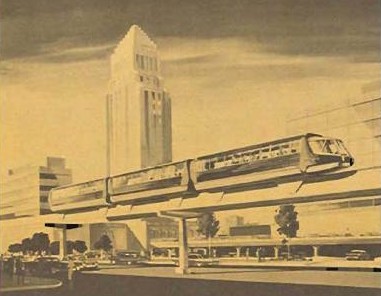I hope you all had a good Labor Day. Streetsblog is back to work today, and you probably are too. But Congress? Not until next week. Every time there's a Monday holiday, Congress takes the whole week off, and they're milking the last moments of their August recess.
It's no wonder lawmakers are procrastinating. They have a lot of unpleasant business to tackle when they get back, and not a lot of time to do it.
The start of fiscal year 2014 is less than a month away, and there are only nine legislative days between now and then. In those nine days, Congress is going to have to make some decisions about spending -- including transportation spending. In an ideal world, they'd also give some serious thought to passenger rail policy.
Here's an overview of the major transportation issues Congress should be addressing.
First, the rail reauthorization
The five-year Passenger Rail Investment and Improvement Act of 2008 (PRIIA) expires September 30. This spring, Congressional Republicans confidently pledged that it would be reauthorized this year -- and then promptly dropped the ball (though, according to a spokesperson for the House Transportation Committee, they are working on language for the bill and will continue to do so into the fall.)
The fact is, it would have been nice to have something new in place before PRIIA’s expiration, but it’s not actually necessary. The current bill will just keep rolling over until Congress actually bothers to pass a new one. It’s not like the surface transportation bill, which needs to be reauthorized or extended before it expires. (The transportation bill is funded with Highway Trust Fund money that doesn’t go through an appropriations process, and the contract authority for that money does need to be current in order for it to be spent.)
But lots of programs get appropriations every year without ever being authorized. (Think TIGER.) Amtrak was one of those for a long time -- before PRIIA, there was no rail authorization in place for years.
“An authorization that doesn’t authorize sufficient funding and contains bad policies would be worse than no authorization,” said Malcolm Kenton of the National Association of Railroad Passengers. But a well-designed authorization -- “if it gives Amtrak the resources it needs to grow and modernize without micromanaging the company or imposing too many specific mandates” -- could be a huge boost for American passenger rail.
A big funding increase would be sweet, but the chair of the Rail Subcommittee in the House has made clear that he thinks the best Amtrak can reasonably hope for would be no cuts to the current allocation.
The rail bill isn’t all about funding. PRIIA set major new policies, like standardizing how Amtrak and commuter railroads share maintenance costs on the Northeast Corridor, and requiring states to financially support routes shorter than 750 miles that serve them.
What would a good authorization bill look like? We laid out some ideas in the spring. Another option would be to take a page from the Senate Commerce Committee's playbook and pick up the rail title the committee wrote for MAP-21, which ended up on the cutting room floor. The freight rail industry is also interested in a new bill -- one that reduces cargo rates, they hope.
So that’s the story with the rail bill: No urgency, so it’ll probably wait. And that might not be a bad thing: Rail advocates would like to see the rail authorization timed to coincide with the surface transportation bill -- and, ideally, become part of it. When they really get going, they start talking about getting dedicated funding from a revamped Transportation Trust Fund -- but it's safe to assume that’s still years away.
Dedicated funding would free Amtrak from the vagaries of the appropriations process -- which is where we’re going next.
Continuing Resolution
Before recess, the House Appropriations Committee passed a Transportation and HUD budget that would have cut spending by 15 percent. Then leadership yanked it off the floor before it could come up for a vote. The Senate committee passed a much more robust bill, which would actually have a shot at improving the nation’s transportation systems -- but Republicans blocked that too.
Last week, the Rails-to-Trails Conservancy alerted its members that Senator Rand Paul’s amendment to cut bike and pedestrian funding could come back when the chamber reconvenes. But the fact is, the bill -- and therefore Paul’s amendment -- is dead, not to be revived.
That’s the silver lining to a very grim situation. If the two chambers could come together on a budget, it could easily be worse than the current one that keeps getting extended through continuing resolutions. (Another silver lining is that lawmakers have already said that in extending last year’s budget, they’ll also keep last year’s sequester cuts -- which were brutal, but not as bad as what would be in store for 2014.)
Silver linings aside, it’s still a sad state of affairs when the nation’s lawmakers, year after year, craft and debate spending bills that are so polarized that they can’t even sit down and discuss them in hopes of finding a compromise.
Even worse, the continuing resolution that will need to pass before September 30 (to keep the entire public sector running) is booby-trapped with the two most volatile issues in Congress: health care and the debt ceiling.
Many in the House want to condition the continuing resolution on the defunding of Obamacare. And meanwhile, just a few weeks after the end of the fiscal year, the nation’s debt ceiling will need to be raised -- which House Republicans will seek to turn into a bargaining chip. So any CR passed to meet the September 30 deadline could be a very short one, allowing for a new round of haggling as the debt ceiling deadline approaches.
So, enjoy your last week of Congressional recess. We’ll be in the thick of all this madness soon enough.







